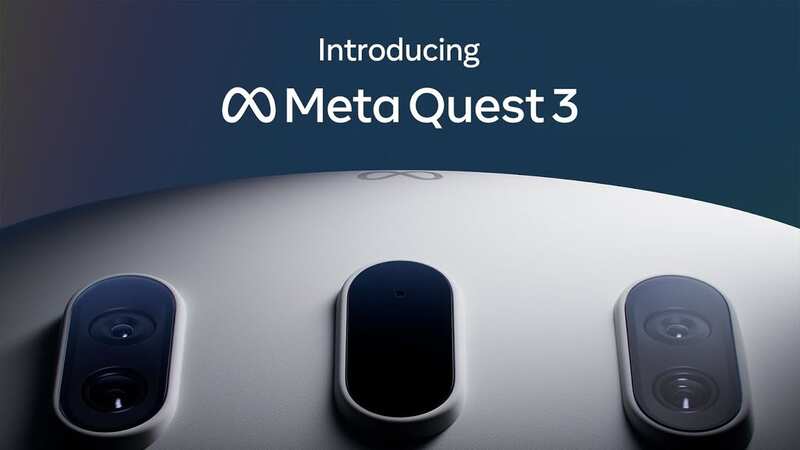The Meta Quest 3 needs a 256GB model – but Meta has a PSVR 2-sized price problem

Considering the confirmed launch price of the Meta Quest 3 128GB model, Meta has a PSVR 2-sized problem with its as-yet-unconfirmed higher-capacity 256GB version.
With the Meta Connect 2023 event fast approaching, I'm more excited now than ever for the full showcase of the Meta Quest 3. The VR headset is set to launch this fall, likely very soon after Meta Connect, however so far we only have confirmation of one model, which will feature 128GB of internal storage and sit at £499 / $499, which converts to AU$763.69. The question on my mind at the moment is whether or not the Meta Quest 3 will live up to this spectacular price point, and if doesn't, the tech giant will have a big problem if it wants to launch a second model.
In order to understand the Meta Quest 3 price, we have to take into account that the Meta Quest 2 launched with 2 models, a 64GB edition which cost US$299 / £299 / AU$479, and a 256GB edition, which came in at £399 / $399 / AU$639. The 64GB headset was axed a year later and replaced with a 128GB model which came in at the same price point in the UK and US and was AU$509.99 in Australia.
Over its lifespan, the Meta Quest 2 has seen multiple price changes, with the most recent being alongside the Meta Quest 3 announcement where there was confirmation that the predecessor will be seeing a price drop in order to make VR more accessible, claimed Meta. This brings it back down to its initial launch price.
The Meta Quest 3 price being $200 above its predecessor at launch means the headset will really have to justify its price difference through its specifications. I believe if Meta is able to successfully deliver all of its promised features, this will truly be one of the best virtual reality headsets on the market and explain its higher price point.
 PSVR 2 is already losing to the Meta Quest 2 in the VR headset battle
PSVR 2 is already losing to the Meta Quest 2 in the VR headset battle
Meta has pretty much confirmed the existence of a higher-capacity Meta Quest 3 model via a blog post, saying it will offer "an additional storage option for those who want some extra space", but stopped short of confirming the exact capacity or pricing for this second Meta Quest 3 model. With higher fidelity games and more graphically powerful experiences likely to become increasingly available during the lifespan of this device, Meta simply needs to launch a 256GB model, as external drives are unlikely to be supported with this device, judging by the complete lack of external storage support that the Meta Quest 2 had.
Considering the current Meta Quest 3 price, if the pricing structure follows that of the Meta Quest 2, then a 256GB edition would likely come in at £599 / $599 (converting to roughly AU$936), pricing the device above the PSVR 2 headset, which is currently available for £529.99 / $549.99 / AU$879.95. And that's a big problem.
The higher-capacity Meta Quest 3 would have a very difficult time justifying a price point above the PSVR 2, even with a higher storage capacity, considering the latter possesses over 10 teraflops of power, whereas the former only possesses 2.4 teraflops.
Despite presenting great features, the Meta Quest 3 is a standalone VR headset, meaning it runs off of a mobile gaming chip, whereas PSVR 2 runs off of the powerful chip hosted by the PS5, putting it leagues ahead in terms of pure power. This means that the higher-capacity Meta Quest 3 potentially coming in at such a high price point would be hard to justify, which is a shame because Meta has created this problem all by itself with the pricing of its 128GB model.
As of right now, it's all just a waiting game. Although we have some confirmed specs of the Meta Quest 3, there's no way to see how it will hold up until we have it in hand for testing.
Read more similar news:
Comments:
comments powered by Disqus

































